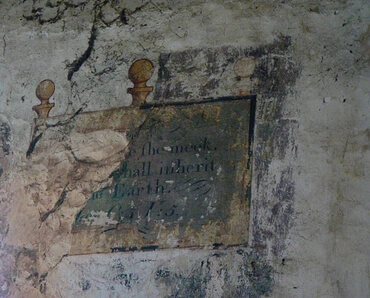1
"เพราะ ดูเถิด ในวันเหล่านั้นและในเวลานั้น เมื่อเราให้ยูดาห์และเยรูซาเล็มกลับสู่สภาพเดิม
2
เราจะรวบรวมบรรดาประชาชาติทั้งสิ้น และนำเขาลงมาที่หุบเขาเยโฮชาฟัท และเราจะเข้าสู่การพิพากษากับเขาที่นั่นด้วยเรื่องประชาชนของเรา คืออิสราเอลมรดกของเรา เพราะว่าเขาได้กระจายชนชาติของเราไปท่ามกลางประชาชาติ และได้แบ่งแผ่นดินของเรา
3
และได้จับสลากเอาประชาชนของเรา และให้เด็กผู้ชายเป็นข้าของหญิงโสเภณี และขายเด็กผู้หญิงไปซื้อเหล้าองุ่น และดื่ม
4
โอ ไทระและไซดอน และประเทศฟีลิสเตียทุกแคว้นเอ๋ย เจ้าจะเอาอะไรกับเรา เจ้าจะแก้แค้นเราหรือ ถ้าเจ้าสนองเราอยู่ เราจะตอบสนองการกระทำของเจ้าเหนือศีรษะของเจ้าอย่างฉับพลันและอย่างรวดเร็ว
5
เพราะเจ้าได้เอาเงินของเราและทองคำของเราไป และเอาทรัพย์สมบัติมั่งคั่งของเราไปยังบรรดาวิหารของเจ้า
6
เจ้าได้ขายประชาชนยูดาห์และเยรูซาเล็มให้แก่พวกกรีก ถอนเขาไปไกลจากแดนเมืองของเขา
7
ดูเถิด เราจะกระตุ้นเขาจากสถานที่ซึ่งเจ้าขายเขาไปนั้น เราจะตอบสนองการกระทำของเจ้าบนศีรษะของเจ้าเอง
8
เราจะขายบุตรชายและบุตรสาวของเจ้าไว้ในมือของคนยูดาห์ และเขาทั้งหลายจะขายต่อไปยังคนเสบา แก่ประชาชาติหนึ่งที่อยู่ห่างไกลออกไป เพราะว่าพระเยโฮวาห์ลั่นพระวาจาแล้ว"
9
จงประกาศข้อความต่อไปนี้ให้นานาประชาชาติทราบว่า จงเตรียมทำการรบ จงปลุกใจชายฉกรรจ์ทั้งหลาย ให้พลรบทั้งสิ้นเข้ามาใกล้ ให้เขาขึ้นมาเถิด
10
จงตีผาลไถนาของเจ้าให้เป็นดาบ และตีขอลิดของเจ้าให้เป็นทวน ให้คนอ่อนแอพูดว่า "ฉันเป็นนักรบ"
11
บรรดาประชาชาติทั้งสิ้นเอ๋ย จงรวมกันอยู่ล้อมรอบ จงรีบมาเถิด จงเรียกประชุมกันที่นั่น ข้าแต่พระเยโฮวาห์ ขอทรงนำนักรบของพระองค์ลงมา
12
ให้บรรดาประชาชาติตื่นตัวและขึ้นมายังหุบเขาเยโฮชาฟัท เพราะที่นั่นเราจะนั่งพิพากษาบรรดาประชาชาติทั้งสิ้นที่อยู่ล้อมรอบ
13
จงเอาเคียวเกี่ยวเถิด เพราะถึงฤดูเกี่ยวแล้ว เข้าไปซิ ย่ำเลย เพราะบ่อย่ำองุ่นกำลังเต็ม บ่อเก็บน้ำองุ่นล้นแล้ว เพราะว่าความชั่วของเขาทั้งหลายมากมายนัก
14
มวลชน มวลชนในหุบเขาแห่งคำตัดสิน เพราะวันแห่งพระเยโฮวาห์ใกล้เข้ามาแล้วในหุบเขาแห่งคำตัดสิน
15
ดวงอาทิตย์และดวงจันทร์จะมืดไป ดวงดาวจะอับแสง
16
พระเยโฮวาห์จะทรงเปล่งพระสิงหนาทจากศิโยน ทรงเปล่งพระสุรเสียงของพระองค์จากเยรูซาเล็ม และฟ้าสวรรค์กับพิภพก็จะหวั่นไหว แต่พระเยโฮวาห์จะทรงเป็นความหวังแห่งประชาชนของพระองค์ เป็นที่กำบังเข้มแข็งของคนอิสราเอล
17
"ดังนั้นเจ้าทั้งหลายจะได้รู้ว่า เราคือพระเยโฮวาห์พระเจ้าของเจ้า ผู้ประทับในศิโยน ภูเขาบริสุทธิ์ของเรา แล้วเยรูซาเล็มจะเป็นเมืองบริสุทธิ์ จะไม่มีคนต่างด้าวผ่านเมืองนั้นไปอีกเลย
18
และอยู่มาในวันนั้นจะมีน้ำองุ่นใหม่หยดจากภูเขา และมีน้ำนมไหลมาจากเนินเขา และห้วยทั้งสิ้นของยูดาห์จะมีน้ำไหล และน้ำพุจะมาจากพระนิเวศของพระเยโฮวาห์ และรดหุบเขาชิทธิม
19
อียิปต์จะกลายเป็นที่รกร้าง และเอโดมจะกลายเป็นถิ่นทุรกันดารร้าง เพราะเหตุความรุนแรงที่กระทำต่อชนชาติยูดาห์ เพราะว่าเขากระทำให้โลหิตที่ปราศจากความผิดตกในแผ่นดินของเขา
20
แต่ยูดาห์จะมีคนอาศัยอยู่เป็นนิตย์ และเยรูซาเล็มจะมีผู้อาศัยอยู่ทุกชั่วอายุ
21
เราจะชำระเลือดของเขาซึ่งยังมิได้รับการชำระ เพราะพระเยโฮวาห์ทรงสถิตในศิโยน"







